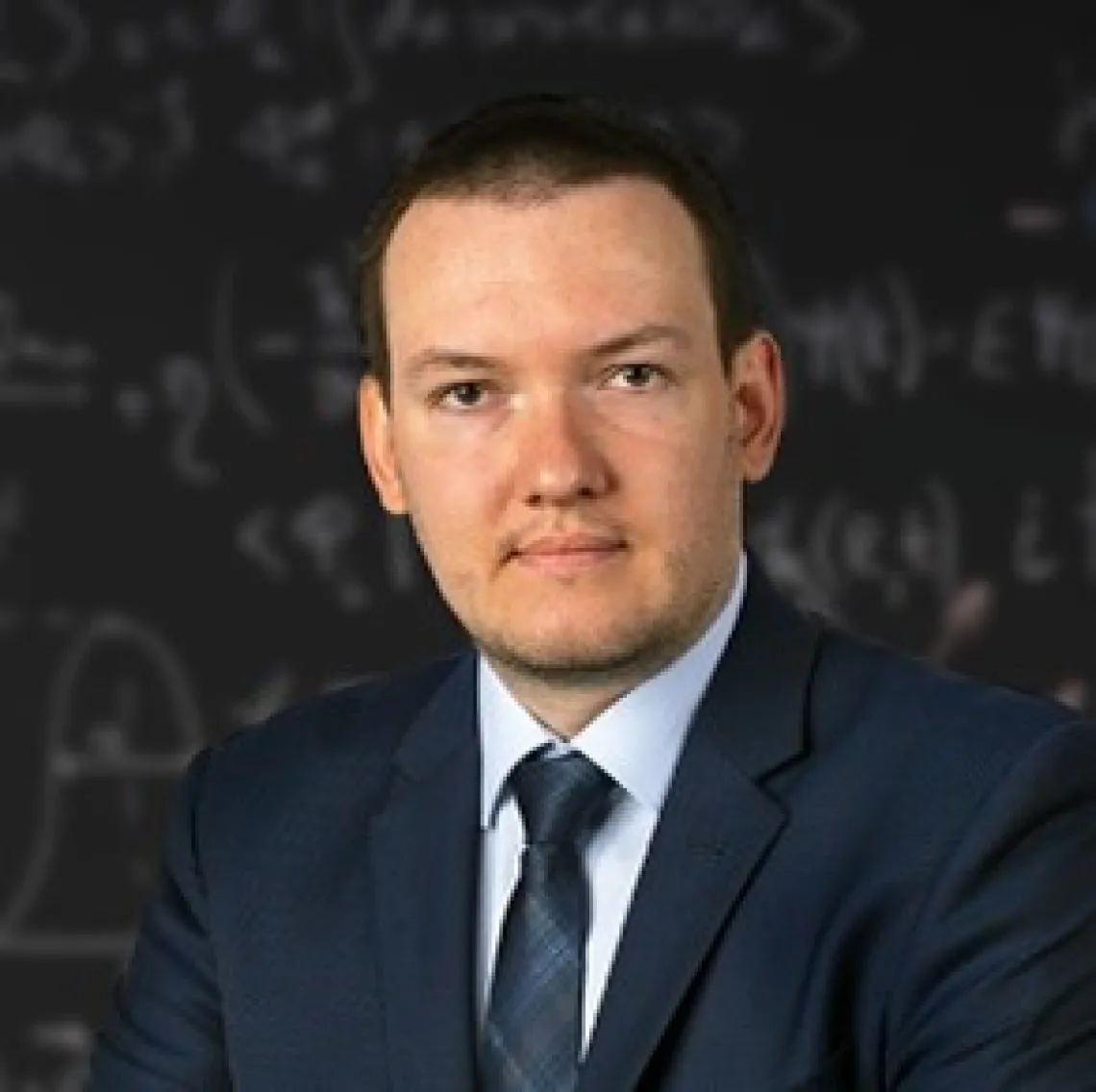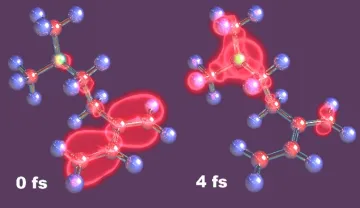Nikolay Golubev receives prestigious DOE Early Career Research Program Award

The Department of Physics is pleased to announce that Assistant Professor Nikolay Golubev has received a prestigious DOE Early Career Research Program Award. Prof. Golubev will receive $875,000 over five years for his research entitled "Unraveling Ultrafast Electron-Nuclear Dynamics in Molecules".
Prof. Golubev was among the 93 early career scientists selected from across the country to receive $135 million in funding for research covering a wide range of topics, from artificial intelligence to fusion energy. This year’s awardees represent 48 universities and 12 National Labs in 27 states. These awards are a part of the DOE’s long-standing efforts to develop the next generation of STEM leaders who will solidify America’s role as the driver of science and innovation around the world.
For more details about the DOE Early Career Research Program Awards see the DOE press release.
About the Research
The research project initiated by Prof. Golubev aims to shed light on the fascinating physics behind the interaction of molecules with light. Photoinduced molecular processes play a key role in physics, chemistry, and biology. In nature, light triggers a large variety of chemical reactions such as photosynthesis, vision, and the formation of vitamin D, but also can cause the radiation damage of biomolecules and photolysis. Furthermore, the interaction of light with matter forms the basis of important technological applications such as solar cells in which photoinduced charge transfer and light harvesting are essential.
What all these processes have in common is capturing the energy of light and its transformation into other forms of energy like heat, electricity, or chemical energy. On a microscopic level, this energy conversion process is the result of a correlated motion of electrons and nuclei after photoexcitation or photoionization of a molecule. Although much had been achieved in the understanding of fundamental physics lying behind the electron-nuclear interactions and dynamics, the accurate numerical simulations of light-induced processes taking place in realistic polyatomic molecules remain an unsolved problem.

Ultrafast light-driven electron dynamics in a polyatomic molecule. Visit https://ngolubev.com/ to learn more.
The objective of this research is to develop both exact and approximate computationally efficient quantum dynamics methods capable of simulating the light-driven electron-nuclear dynamics in polyatomic molecules that take into account non-adiabatic effects and proceeds on the multitude of electronic states. While the main focus will be method development, all new methods will be applied to describe properties and behavior of systems of physical, chemical, and biological interest, interpret recent experimental measurements and guide future experimental efforts.
The proposed research program has the potential to make several scientific breakthroughs that address fundamental questions in atomic and molecular physics and chemistry. The ability to simulate the electronic and nuclear dynamics can provide new insights for understanding properties of matter and is of crucial importance to comprehend the diversity of the world or even life.
About Nikolay Golubev
Dr. Golubev joined the University of Arizona in August 2022 as an Assistant Professor of physics. His work focuses on developing and applying theory and simulation methods to investigate the ultrafast quantum dynamics in atoms, molecules, and solids. The interdisciplinary research program established by Prof. Golubev combines advanced theoretical approaches, efficient computational algorithms, and state-of-the-art high-performance computing to study the fundamental physics behind the correlated motion of electrons and nuclei.



